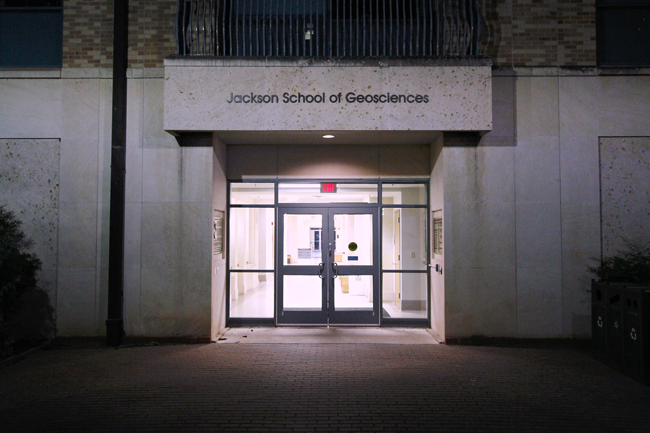If you ever liked going to the museum as a kid and thought all those bones of ancient creatures and colorful rocks were only for fun, here is what you should know: those actually help save lives by predicting Earth’s future. Geology is a much broader field than you may have ever imagined. It looks at the changes occurring on Earth, such as global warming, sea level rise that affects cities close to oceans, finding clean drinking water and maintaining the water level, looking at the tectonics of Earth and its effects on locations prone to earthquakes and a lot more.
While geologists have a reputation for working in the oil and gas industry, many geologists engage in research that helps them predict the future of Earth and climate events, a science that has already saved countless lives. Hannah Brame, a Ph.D. student at the Jackson School of Geosciences, says that many people don’t have a full understanding of geology’s scope.
“Geology encompasses more than just the study of rocks,” Brame said via email. “Geologists study weather patterns in the atmosphere, the long term trajectory of the climate, the processes that drive earthquakes and volcanoes, the geodynamo that produces Earth’s magnetic field, and the movement of water in the oceans, rivers and below the ground. Information gained through geological studies helps us predict earthquakes and drill drinking-water wells.”
Paleontology, sometimes considered a subset of evolutionary biology, is a subfield of geology and helps us see the evolutionary relationship amongst organisms. These relationships have helped people understand allergies. For example, knowing that one is allergic to some vegetables is not helpful in predicting exactly which vegetables one ought to avoid. But seeing the evolutionary relationship, we can predict that if people are allergic to lettuce, carrots and celery, they are more likely to be allergic to potatoes and tomatoes than spinach and asparagus. This shows that it isn’t about the appearance of the vegetables, but about their evolutionary history.
Geologists and paleontologists are hard at work to make our future better. Studying several species has contributed to about half of the medicines we see today. And studying humanity’s impact on Earth helps them predict the climate and anticipate the dangers of global warming. According to Brame, scientists in this discipline continue to build on past knowledge to improve our future.
“Geologists will be working to help maintain groundwater resources and predict how continued global warming will affect global climates,” Brame said. “Paleontology will help us focus conservation efforts on the areas likely to be affected the most by climate change.”
Adding to that, Brame said that “information learned from the fossil record has led to our understanding of evolution, which helps us understand how antibiotic resistant bacteria develop and how crops can be modified to produce a higher yield.”
Geology is not just about rocks and oil, it is about all life related to earth science. Geologists are in some sense like doctors and lifeguards. People should trust geologists who present to us evidence that climate change and evolution are real. Our generation should consider this vast field of science, because it can help build a better future for the society. Most importantly it is a cool science!
Batra is computer and science and rhetoric and writing junior from New Delhi.





















